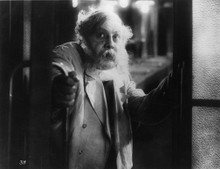 Loading... Please wait...
Loading... Please wait...New Products
Our Newsletter
Product Description
The Last Laugh (1924)
Director:
F.W. MurnauWriter:
Carl MayerStars:
Emil Jannings, Maly Delschaft, Max HillerF.W. Murnau's German silent classic The Last Laugh (Der Letze Mann) stars Emil Jannings as the doorman of a posh Berlin hotel. Fiercely proud of his job, Janningscomports himself like a general in his resplendent costume, and is treated like royalty by his friends and neighbors. The hotel's insensitive new manager, noting that Jannings seems winded after carrying several heavy pieces of luggage for a patron, decides that the old man is no longer up to his job. The manager demotes Jannings to men's washroom attendant, and the effect is disastrous on the man's prestige and self-esteem. Logically, the film should end on a note of tragedy, but Murnau (either because he was ordered to by the producers or because he just felt like it) adds a near-surrealistic coda, wherein Jannings, having suddenly inherited a fortune, returns to the hotel in triumph. The Last Laugh was a bold experiment for its time: a film told entirely visually, with no subtitles save for the semi-satirical explanation of the climax. In a sense, Karl Freund's camera is as much a "character" as anyone else, commenting upon Jannings' rise and fall via then-revolutionary camera angles, jarring movements and grotesque lens distortions. Many historians credit The Last Laugh as the vanguard of the "German invasion" of Hollywood during the mid- to late-1920s.
Here is the link to the film at the Internet Movie database: http://www.imdb.com/title/tt0015064/?ref_=fn_al_tt_1
Currency Converter
Choose a currency below to display product prices in the selected currency.

















